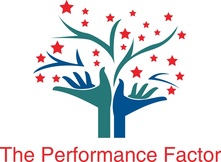Business & Strategic Planning

There is broad agreement that business and strategic planning is a critical component of good management and governance, helping to clarify where your organisation is going, how it is going to get there and how it will know if it got there or not. Specifically, it:
Far more important than the strategic plan document, is the strategic planning process itself. The process can produce great satisfaction among the planners, especially around a common vision, and it can provide the glue helping to keeping the team together and build a strong team.
Many organisations choose to invite their staff to participate in the planning process. This allows the company to tap into the wealth of knowledge and ideas residing within the workforce, and also helps to promote employee engagement with, and agreement to, the resulting plan. Additional benefits are that it can help to bridge the gap between employees and the Board/Executive Team.
Whether the key planning sessions involve the entire workforce, or just a few of the senior managers, they often work best when facilitated by an outsider knowledgeable about the organization. The facilitator should be someone skilled in group processes and experienced in strategic planning who is non-directive, committed to assuring full discussion of issues but also task-oriented and able to move the process forward. The Performance Factor is ready to provide an experienced, skilled facilitator for your meetings.
As well as a focus on strategy formulation and planning, a successful organisation needs to have an equal focus on implementation and delivery of the plan through its people. The plan will be of limited effectiveness if it is not properly communicated to all employees, ensuring that they understand it and 'buy into' it. The plan should be continually reinforced as a living force within the organisation; a plan that is written then filed away and forgotten is worthless and a waste of valuable time and resources.
Individual, team, departmental and company goals and objectives should be formulated to guide the business towards achievement of the plan. Having clear goals is essential to delivering high levels of business performance. This is not only at the personal level of understanding what the individual is supposed to achieve, but at the wider level of people really understanding how their work contributes to the success of the organisation.
A variety of other useful plans can be developed on the back of the overall Business Strategic Plan. For example, a Workforce Plan.
- enables your organisation to look into the future in an orderly and systematic way
- helps you to ensure that your business remains relevant and responsive to the needs of your customers
- helps you to forecast and predict future trends, opportunities and challenges and marshall resources to meet them
- contributes to organisational stability and growth
- provides a basis for monitoring and measuring progress, and for assessing results and impact
- facilitates new program or product development
- enables you to set policies and goals to guide the organization
- provides a clear focus and shared vision enabling your staff to 'march to the beat of the same drum', thereby increasing efficiency, productivity and effectiveness
- helps your organisation to focus on the key priorities and allocate resources accordingly
Far more important than the strategic plan document, is the strategic planning process itself. The process can produce great satisfaction among the planners, especially around a common vision, and it can provide the glue helping to keeping the team together and build a strong team.
Many organisations choose to invite their staff to participate in the planning process. This allows the company to tap into the wealth of knowledge and ideas residing within the workforce, and also helps to promote employee engagement with, and agreement to, the resulting plan. Additional benefits are that it can help to bridge the gap between employees and the Board/Executive Team.
Whether the key planning sessions involve the entire workforce, or just a few of the senior managers, they often work best when facilitated by an outsider knowledgeable about the organization. The facilitator should be someone skilled in group processes and experienced in strategic planning who is non-directive, committed to assuring full discussion of issues but also task-oriented and able to move the process forward. The Performance Factor is ready to provide an experienced, skilled facilitator for your meetings.
As well as a focus on strategy formulation and planning, a successful organisation needs to have an equal focus on implementation and delivery of the plan through its people. The plan will be of limited effectiveness if it is not properly communicated to all employees, ensuring that they understand it and 'buy into' it. The plan should be continually reinforced as a living force within the organisation; a plan that is written then filed away and forgotten is worthless and a waste of valuable time and resources.
Individual, team, departmental and company goals and objectives should be formulated to guide the business towards achievement of the plan. Having clear goals is essential to delivering high levels of business performance. This is not only at the personal level of understanding what the individual is supposed to achieve, but at the wider level of people really understanding how their work contributes to the success of the organisation.
A variety of other useful plans can be developed on the back of the overall Business Strategic Plan. For example, a Workforce Plan.
Workforce Planning
A Workforce Plan ensures the right number of people with the right skills are in the right place at the right time to deliver short- and long-term organisational objectives.
The term ‘workforce planning’ tends to embrace a diverse and extensive range of activities, which may vary between organisations and situations.
The Performance Factor are able to provide guidance and support in developing a Workforce Plan, which may incorporate some or all of the following areas:
The term ‘workforce planning’ tends to embrace a diverse and extensive range of activities, which may vary between organisations and situations.
The Performance Factor are able to provide guidance and support in developing a Workforce Plan, which may incorporate some or all of the following areas:
- succession planning
- flexible working
- recruitment and retention planning
- skills, knowledge and/or competency Audit
- talent management
- multi-skilling
- job/role design
|


